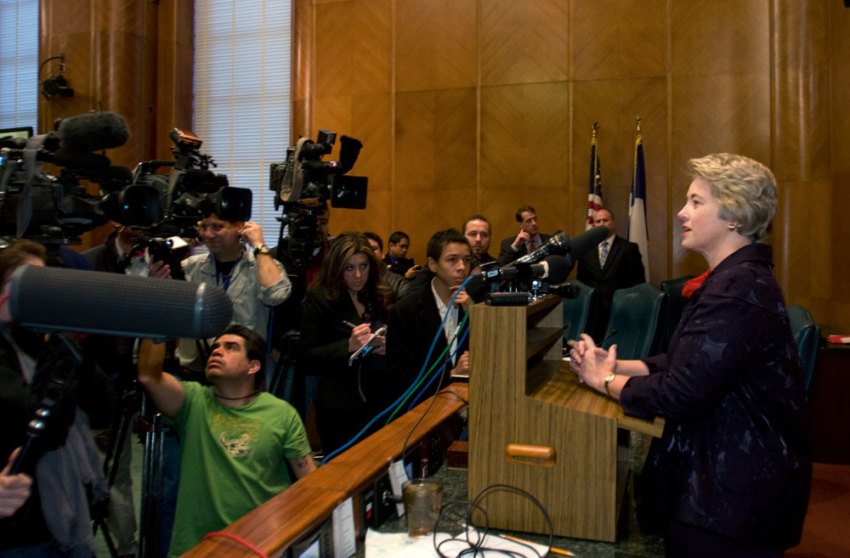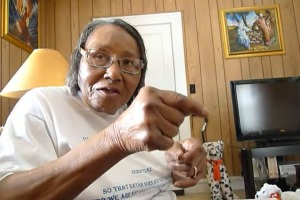Houston Voters Defeat Controversial 'Transgender Bathroom' Ordinance

A controversial Houston city ordinance that critics said would have allowed men to use women's restrooms if enacted has been defeated at the ballot box.
The Houston Equal Rights Ordinance, or HERO, was put to referendum as Proposition 1 in the nation's fourth largest city on Tuesday and lost with 62 percent of voters rejecting it.
HERO expanded antidiscrimination laws regarding businesses and public facilities to include sexual orientation and gender identity.
Family Research Council, a socially conservative organization based in Washington D.C., was active in the debate over the ordinance.
"Houston has become a rallying cry for Americans tired of seeing their freedoms trampled in a politically correct stampede to redefine marriage and sexuality," stated FRC President Tony Perkins.
"Houstonians' religious freedom, freedom of speech, and the right to petition their government have won the day, but much more work remains to be done to safeguard these freedoms across the nation."
Last year, with the strong support of openly gay Mayor Annise Parker, the Houston City Council voted 11 to 6 to approve an Equal Rights Ordinance.
HERO amended Chapters 2, 15 and 17 of Houston's Code of Ordinances, prohibiting discrimination in public facilities and private employment on the basis of "protected characteristics."
This list of protected characteristics included race, color, ethnicity, sex, national origin, age, familial and marital status, military status, religion, disability, genetic information, pregnancy, sexual orientation and gender identity.
Critics claimed HERO had several unintended consequences, such as fining Christian business owners who may be opposed to having men use women's restrooms.
The road to the vote on Proposition 1 was not a smooth one, as Houston officials attempted to derail the referendum even after opponents got tens of thousands more signatures than necessary to put HERO on the ballot.
In July, the Texas Supreme Court ruled that the city had to either repeal HERO or put the ordinance to a vote in November.
"The City Council is directed to comply with its duties, as specified in the City Charter, that arise when the City Secretary certifies that a referendum petition has a sufficient number of valid signatures. Any enforcement of the [Equal Rights] ordinance will be suspended," ruled the high court.
"If the City Council does not repeal the ordinance by Aug. 24, then by that date the City Council must order that the ordinance be put to popular vote during the November election."
As social conservatives rejoiced at the defeat of HERO, Parker and others denounced Tuesday's results as having "stained Houston's reputation as a tolerant, welcoming global city."
"No one's rights should be subject to a popular vote," stated Parker. "I absolutely fear there will be a direct economic backlash."



























